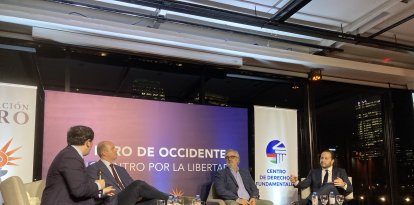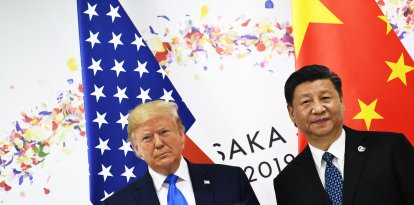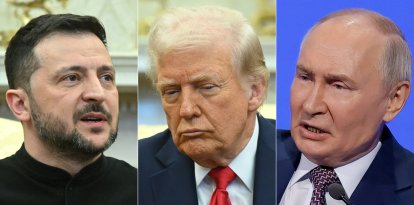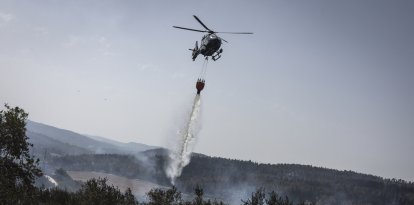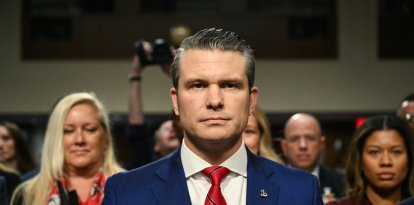NATO turns 75 with its eyes on Moscow
The organization's secretary general, Jens Stoltenberg, led an event amid discussions about how to contribute to the Ukrainian war effort, who will succeed him in office and the membership of the United States.
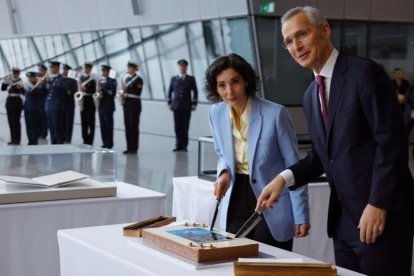
NATO Secretary General Jens Stoltenberg and Belgian Foreign Minister Hadja Lahbib (AFP)
"Bigger, stronger and more united than ever." That is, 75 years after its founding, the state of affairs of the North Atlantic Treaty Organization (NATO) according to its secretary general, Jens Stoltenberg.
The military and political alliance was formed on April 4, 1949, when the United States, Canada and a dozen European nations gathered in Washington to sign a mutual defense treaty against the Soviet threat. Moscow would later respond with an alliance of its own: the Warsaw Pact, dissolved shortly before the fall of the Soviet Union.
From 12 founding members, NATO has grown to 32. Proof, according to Stoltenberg, that "we must be doing something right." The latest additions were motivated and accelerated by the Russian invasion of Ukraine. Finland and Sweden, one bordering and the other close to Russian territory, asked to fly their flags at the organization's headquarters in Brussels after Russian troops set foot on Ukrainian territory. In the last two years, both requests were fulfilled. If Stoltenberg considers the latter a measure of success, the opposite could be said of Vladimir Putin: one of the reasons given by the Russian president for attacking Ukraine was that he felt threatened by the expansion of NATO.
Despite requests from Kiev, Ukraine, for now, he will have to wait to become the 33rd member of the club. The same can be said about the sending of foreign troops. The allies' discussion focuses on how to provide military resources to Ukrainian forces. In that sense, Stoltenberg is promoting the creation of a fund of nearly $108 billion over the next five years to support the war against Russia, according to AFP. In addition, he wants the organization to be directly involved in the delivery of the equipment to the defending soldiers, with the intention of speeding up the delivery process.
Words for America
"I do not believe in America alone, just as I don’t believe in Europe alone," Stoltenberg said during the anniversary celebration, in which foreign ministers of the member countries participated. "Through NATO, the United States has more friends and more Allies than any other major power."
"Fair burden sharing is essential," the Norwegian politician also said. "Europe is investing more, much more." That was one of Donald Trump's demands during his presidency: that European allies increase their military investment, so that the burden of defense would not fall disproportionately on the United States.
Last month, Trump, steadily moving toward the Republican nomination, made that point again: "The United States should pay its fair share, not everybody else's fair share." The country will remain at the table as long as, he assured, European countries "play fair."
"This year, the majority of NATO Allies will invest at least 2% of their GDP in defence," Stoltenberg said during his speech this Thursday. In 2014, only three countries reached that level of spending, according to AFP.
Questions about the future
During the meetings that will be held around the celebration, the emissaries hope to make progress on a key issue for the future of the organization: who will be the next secretary general.
Stoltenberg, who extended his original four-year term four times, is due to leave office on October 1. Several international leaders, especially European, have declared interest in the position. All secretaries to date have come from Western European countries, according to the Wall Street Journal. The central countries of the continent would be looking to promote one of their own.
Although there would be time until September to name a successor, the members would be rushing the discussion to resolve the designation before the elections to the European Parliament in June.
RECOMMENDATION
